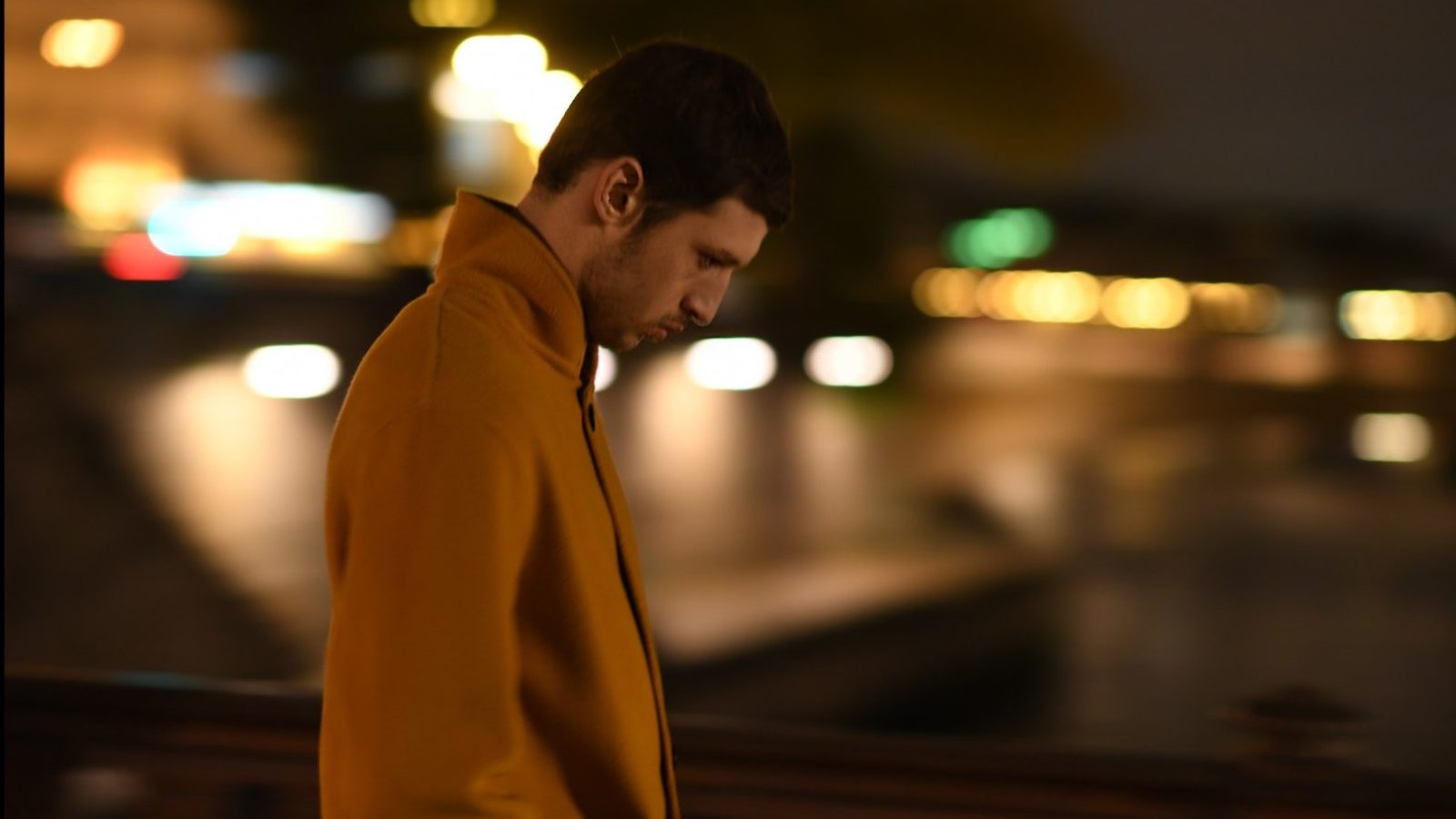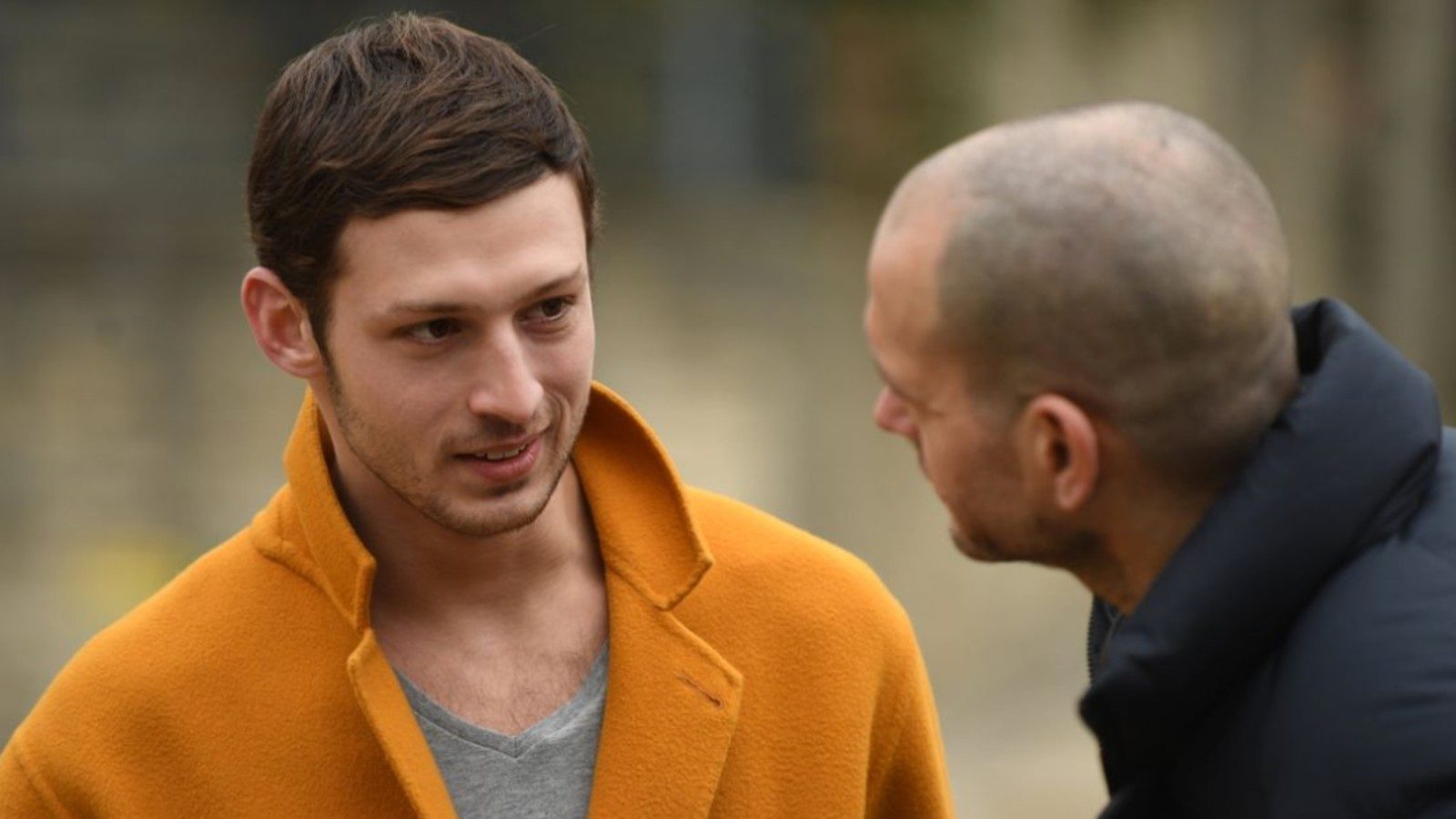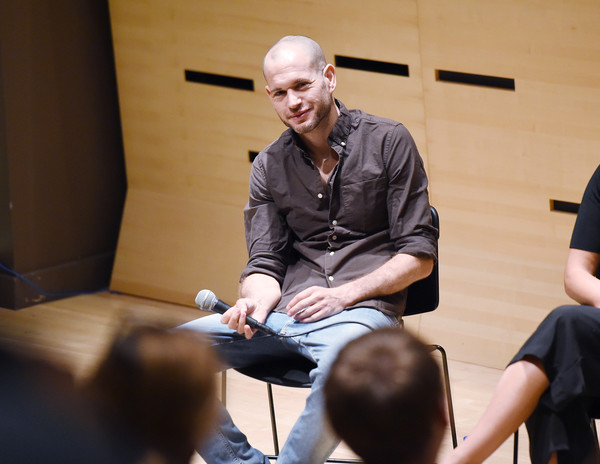Interview: Nadav Lapid on 'Synonyms' and who gets to tell which stories
 Friday, October 25, 2019 at 6:00PM
Friday, October 25, 2019 at 6:00PM 
Using his own experiences as a blueprint Nadav Lapid (The Kindergarten Teacher) made a furious, kinetic and altogether astounding film about being disaffected and seeking a new life, ideals and country. In Synonyms (opening today in limited release) Tom Mercier plays Yoav, a young Israeli who flees Tel Aviv for Paris and tries to completely erase his former identity. The movie is not easy to describe, it’s better to dive in and enjoy the experience. It won numerous accolades around the world this year starting with the Golden Bear at the Berlinale. While in New York to present his film in the main slate of the New York Film Festival, we got the chance to talk to Lapid about his film, his powerful lead actor and who owns the rights to tell which stories. The interview has been edited and condensed for clarity
Murtada Elfadl: Can you talk about the beginning of the film. The first 10, 15 minutes are hypnotic, confusing, and disorienting, throwing the audience into the story with no introduction.
NADAV LAPID: I felt that the movie should start with a vibration, with movement. In a way the biggest challenge of the filmmaking was to create this movie that doesn't have a clear narrative line. I didn't want the film to become a series of anecdotes. We had to have something attached to that feeling, that vibration. It's a movie that's based on compulsion, on an urge. You cannot imagine an introduction to such a movie...
It sounds so strange. And it's not even the fact that neither the main character nor the movie itself can give a clear and defined reasoning and motivation to the decisions that the character makes. And so this is what we came up as the true nature and the essence of the movie.
What effect did you want audiences to have with the beginning of the film?
In my head I always feel it's a little bit like a boxing match with the audience. I'm a spectator who really loves to be punched, so I really appreciate when it's a good punch. Yeah in a way, I'm trying to do the same. I think that for me, with a beautiful piece of art, there's also a feeling of confrontation. But there are also rare moments of sudden grace. And this is when your heart breaks. I think that this is, in a way, what guides me.
This film is inspired by your life. Was it hard to be vulnerable and honest about your own story?
No, because I think the main thing is you should really try to insist at any second on not having any self pity. Pity has no place within the tone of the movie. I remember, for instance, when we were discussing with Tom this scene with the pornographer. It's super easy to turn that kind of scene into trauma or, I don't know, sexual harassment, all these notions that today are extremely popular. But it's super interesting to me that exactly in the moment where the character is in the most inferior situation, they are also gaining a certain power. I wouldn't like it to sound Christian but, you know, the power of the humiliated. What the connection to real events permitted me, is to have the option to detach myself from the too organized and common artististic structure and permitted me to remain in contact with the strangeness and chaos of life.

Why the alienation and determination to leave from your character Yoav. People leave for economic hardship or when their values no longer match the values of the places they live in. I don’t want you to explain your movie however people who left places can recognize that alienation. How did you make it vague yet recognizable and palpable?
I think that the most recognizable thing for people who left places is this feeling that the demon is inside you. It's this 'Rosemary's baby' thing. You can run away to the most distant corner of the galaxy but you contain the thing you are running away from. So there's this Israeli collective soul, it's also his own soul. Maybe it's not precisely defined what bothers him so much, but you can find some signs.
The film is about an existential crisis - and you talked about how its about a feeling or a vibration. How do you go about doing that? It’s not a linear story. Was it always in the script or did you find it on set or in the edit?
You know the genesis of the movie was certain notes that I took back when all of this took place. I didn't know back then that I wanted to make movies. I wasn't this cinephile, I didn't know much about films. I hardly knew there were directors in the world. I thought like that there are cameras and actors. So when I took these notes, I didn't know exactly why am I taking them except for feeling that something is happening, and a powerful need or obligation to relate to it. But when I read these notes, what attracted me is that some of them are chronicles of events but most of them were an expression of a feeling. I'm not interested in historical movies. The only thing that interested me was to recreate this vibration, this feeling and what helped me or what permitted me to do it was that I think that I still have the same feeling. I mean, life changed, life evolves, I have more perspective, but basically I feel the same. And the fact that I feel the same permits me to make this movie as something that took place. As something that celebrates and even sanctifies the present and not as something that talks about the past, who cares about the past.

Talk about your collaboration with lead actor, Tom Mercier. I read that he gave a fantastic audition and you hired him on the spot. What were you looking for and what did he bring to the role?
I think he brought it. He 's such a peculiar creature. On one hand, I've never seen such a hard worker and obedient actor. I mean, he reads the script seven times a day, like a religious Jew is reading the Bible or something. And after three weeks he knows your script much better than you do. He's totally committed. There are actors that have suggestions all the time. He's never had any suggestion or any ideas, not because he's not inventive. But because for him, I think everything is inside. If you read deep enough, you'll find the whole universe inside. He digs so deep, he gets to total liberty and total freedom. I've never seen a more free person. He's not concerned with limits because he doesn't know that they exist. He brought to the film exactly this mixture of giving form and body in the most accurate way to the words that were written while being uncontrolled and unpredictable. Both at the same time and in the most extreme way. I don't know other actors like this.
That mustard yellow coat is ravishing and visually memorable yet it becomes a sort of a uniform. Is he just replacing a military uniform for another?
Before the shooting, when I started to research the film, I told myself that it's a little bit of a superhero movie. He's capable of everything while still being a part of society. And for me a superhero is superior, but their superiority is also inferiority. That's their tragedy. I wanted him to wear something distinctive. I told the costume designer that if someone were to look from the moon at earth, they'd see two things that Chinese wall and Tomas in his coat. Even in the middle of the Champs Elysees surrounded by 1 million people you'd still recognize him in a second. That's how we began. And also I thought that it's really interesting in his complex relationship with his French hosts.They become friends on one hand and Emile gets him into society. He takes this wild savage and gives him everything he needs, like clothes s and money and a cell phone. And at the same time from the very beginning, he separates him from society because they are all in gray and black and he is shining in his this strange coat. And like you said, it's a uniform. He exchanges one uniform with another. But I felt that it gives something poppish to the film, turns him into an idol. What was the name of this movie with Madonna about the detective?
Dick Tracy. That was a yellow coat too.
Yeah, exactly. And because the movie is sort of a legend. A guy who feels that he lives in hell and wants to get to paradise. So, from the beginning there's something legendary about him and I think a legend needs a legendary outfit.

Yes it’s very memrable. Who do stories belong to, that's a fascinating question. Yoav makes a point about giving his French friend Emile his story, then taking it back. This is a question that's being asked constantly now in the culture - who owns the rights to tell which stories?
I think that the moment that he asked for his stories back he’s saying something like, they might not be so interesting but they are mine. This is the moment where in a way his existential project fails. Because if he wanted to be reborn as a baby in France with no history, well babies don't have stories. And at that moment he's recognizing his stories as the demonstration of self, of his identity. It means of course, that you have a past and you have to stop being a tourist because tourists don't have stories. They don't have a self. They only consume the stories of the place they are visiting. This is the moment of crisis with Paris and with his friends because they can not fully integrate him as an equal. As a person who has his own stories, they can integrate him as someone who worships their stories or tells their stories with an exotic accent.
Yeah, I found it very moving .
Thanks. Thank you so much.
Synonyms opens today in limited release.



Reader Comments (2)
You always ask such good questions. I particularly loved that you got him to talk about the opening because I also find that so disorientating. his answer is very cool
the stuff about the mustard coat is golden, too. GREAT INTERVIEW
Wonderful interview, thanks.
I thought Synonymes is like modal music, like the live albums Miles Davis did in the experimental 1970s like "Pangaea", "Agharta" and "Dark Magus" -- statements about dissonant movements. I appreciate Nadav Lapid's vision in muddying the terrain of alienation and dispossession. There is no neat way to tell it but to express them emotionally without safety nets, with little to no logic. Reading Tom Mercier's method in embodying the role of a citizen with no country, I realise a lot of layers flew over my head when I watched this film. A re-watch is absolutely necessary to appreciate this film with discordant images and ambient sounds.
Thanks for bringing Nadav Lapid to speak about the film beyond the obvious.